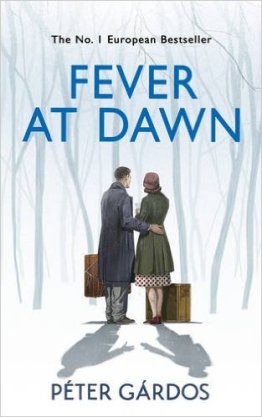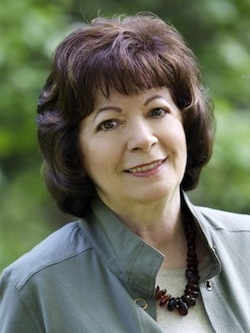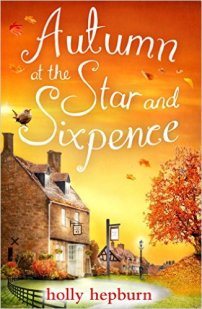
I’m an enormous fan of the independent publisher Urbane Publications so I’m delighted to be featuring another of their authors, Guy Fraser-Sampson, whose novel Death in Profile is published today 28th March 2016. Death in Profile is available to buy on Amazon UK, Amazon US, from Waterstones, Urbane and all good book shops.
I asked Guy a few questions about his writing and career:
Hello Guy and thank you so much for agreeing to be interviewed on Linda’s Book Bag.
You have quite an eclectic background Guy; lawyer, speaker, writer, teacher – if you had to define Guy Fraser-Sampson in a couple of sentences, what would you say?
I suppose you could say I’m a Renaissance man, but that would be both glib and rather pretentious. Let’s just say that I have a very low boredom threshold which means that I’m constantly in search of a new challenge. In the process, I’ve found that there are quite few things I can do reasonably well. I’m sure other people would find the same thing if they tried, but they don’t. But it’s interesting that there is this urge to classify people, to put them in a box and stick a label on it. Interestingly, the same thing happens in finance and investment, which are two of my specialist areas.
Which of your roles have you found the most challenging and which the most rewarding and why is that?
I think being a writer in the most challenging as you need a lot of both self-discipline and self-reliance. Also, at the end of the day it’s not about what you can write but what you can get published (something many writers overlook!). I find being an educator the most rewarding. I teach mostly on the MBA programme, which is being taken by people who are looking to change their lives, often in quite significant ways, and it’s exciting to be able to help them do that.
Which is most interesting or challenging to research, your non-fiction titles or your fiction?
Non-fiction is the most challenging, although I apply the same standards to my fiction as well. For example, every period detail in my Mapp & Lucia books is correct, even down to people’s names.
You write non-fiction articles for a range of European magazines and clients. How do audiences differ in different countries?
They do differ across geography. The Dutch and the Australians, for example, have very different ways of providing pensions. The most difficult article I ever wrote, though, was for ‘Your Money’ and was explaining something very complex in simple terms which hopefully anyone can understand. I wrote a book called No Fear Finance which does the same thing.

Your debut detective work of fiction Death in Profile is out on 28th March. How did you go about changing genre?
I have always wanted to write detective fiction, but I was very nervous about writing ‘just another detective book’, especially as in my view they have all become rather similar. I didn’t see any point in writing noir or in creating yet another damaged detective with a drink / drugs / gambling problem and a broken marriage.
I spent a long time doing market research among book bloggers, book shop managers and serious readers as to what they would like to see in a crime novel. There was a surprising level of consensus, and I have tried to stay true to it. Interesting, likeable characters who have to face up to and resolve real life issues. Good police procedural background. No gratuitous sex, violence or bad language. Above all, a book which treats its readers as mature, intelligent and well-read.
Death in Profile is the first in the Hampstead Murders series. Have you planned several books already or are they emerging organically?
One could get into a very arcane discussion about what is or is not a ‘series’. In my view it should be one long narrative spread across several books. Very few detective ‘series’ would qualify under this description, though Wallender might be an obvious one which does, mixing professional and personal issues. I can see the argument for writing stand-alone books featuring the same characters because then it doesn’t matter in which order people read them but again, I wanted to be different.
All my fiction evolves organically. I just create my characters and then let them take me where they will, and it’s important that you should trust that process. It’s only by being prepared to follow them into some dark places that your writing has integrity. All I know when I begin a detective novel is who the criminal is going to be. Everything else comes to me as I write, though obviously you carry a few ideas with you about method and motive.
Why did you decide to show the more personal side of the police in the Hampstead Murders series?
I think this goes back to wanting to be different. I wanted to create a cast with whom the reader can empathise, and care about what happens to them as they go through life. In order to do this, you have to set them against a personal background. The more of the books you read, the more deeply you will understand, and hopefully like, the characters.
You’re publishing Death in Profile with an independent publisher Urbane Publications. What has it been like working with a smaller, independent outfit?
I have published over a dozen books now with various publishers, including some very big ones like Wiley and Macmillan. I really enjoy working with small, independent publishers like Urbane. First, because you know that you really are important to them. Second, because they are much better at promotion than the big boys. Third, because the person you are dealing with is usually a decision-maker rather than having to refer everything to some committee (often in America).
Given your prolific writing experience, what three pieces of advice would you give to an aspiring writer?
- Have a very thick skin. Unless you are prepared to handle constant rejection (it helps if you’re a man, because you have probably learned all about this already!) and occasionally downright nasty criticism, then please don’t become a writer. I have known some fellow writers get deeply upset and even badly depressed about this.
- Be clear about why you are writing. Are you doing it for pleasure or money / recognition? If the latter, then be sensible. Work out what the big commercial publishers are looking for and then supply it, because they need to be able to tick their boxes: it’s the way they think. Get an agent, because, rather stupidly, they won’t even look at your work unless you do (if you think about it, of course, it should be the other way round). Say “gosh, what a good idea” to anything they suggest. Pretend to be blown away by other books they publish, no matter how bad you think they are. Let them re-write your book if they want to.
- Be persistent. Many good books get rejected, sometimes many times. Arthur Conan Doyle in his early days used to write what he called ‘homing manuscripts’ because they kept getting sent back. You must have the self-belief to keep trying. No Fear Finance was rejected by Wiley (even though I had previously written a best-seller for them) but accepted by Kogan Page. All my fiction was rejected by many publishers before being accepted. Harry Potter was rejected by several, including Macmillan. Mary Wesley and Barbara Pym were rejected not just for years but for decades Incidentally, if I could make just one change to the publishing industry it would be that every book should begin with a list of the publishers who had rejected it. After all, if they have confidence in their judgement, then why should they mind?
How do you carry out the research for your novels?
These days I use the internet a lot, though I write surrounded by books and am often jumping up to check some point or other.
Which aspects of your writing do you find easiest and most difficult?
Writing a book is the easiest part. Getting it published is the most difficult. For this reason, I try not to put any significant work into a book these days unless I know that a specific publisher has serious interest in it. Even then you can come unstuck. I had one publisher commission a three volume history of the Plantagenets, but go bust just as the first one was going into production. (I still have it, if anyone is interested!)
What are your writing routines and where do you do most of your writing?
I write in my study, which sounds rather grand but is just a spare bedroom with a desk and some books. I tend to work best early in the morning, or in the middle of the day. I’m lucky in that I never need to re-write anything. My first draft is also my final draft; I only correct for spelling, punctuation and repetition.
When you’re not writing, what do you like to read?
I grew up in a house without television, and do so again now, so I have always been a voracious reader. I reckon I’ve probably read about 10,000 books, and it’s also why I am a fanatic supporter of public libraries. Edgware library was my teen years!
I read a lot of non-fiction, particularly history. My fiction tastes are pretty catholic, my favourite novel being The Alexandria Quartet, which I have read about ten times. In contemporary crime fiction I go either for writers who are very different and quirky, such as Christopher Fowler, Chris Brookmyre or Malcolm Pryce, or just damn fine writers like Ruth Dugdall. I also read and collect a lot of Golden Age stuff, my overall favourite being Ngaio Marsh, about whom I am talking at CrimeFest this year.
(If readers would like to know more about CrimeFest, please click here.)
Do you have other interests that give you ideas for writing?
Yes, and I think if you don’t do this then your writing will probably suffer for it. For example, in Miss Christie Regrets, the second of the Hampstead Murders series which I am writing at the moment, there is already music (Schumann), Golden Age fiction (Ngaio Marsh and Agatha Christie), architecture (Gropius and Wells Coates), and, of course, lashings of Hampstead locations.
If you hadn’t become an author, what would you have done instead as a creative outlet?
I enjoy both listening to and making music. I actually flirted with the idea at one stage of becoming a professional singer. My talks are also creative. I don’t use notes, I just improvise – trying doing that for an hour …
Which of your characters would you most like to be and why?
One reviewer said rather perceptively that my favourite Mapp and Lucia character appeared to be Mr Wise, and on reflection that may be right. I like to think there’s a lot of me in Simon Collison from The Hampstead Murders, but then there’s also something of myself in Peter Collins. I certainly admire his eccentricity and rather lofty disdain for mundane everyday issues!
If one of your books became a film, which would you choose and why?
I strongly believe that The Hampstead Murders will make a terrific TV series, with Collison’s Hampstead playing the part of Morse’s Oxford or Foyle’s Hastings. Apart from a very strong sense of place, it has some wonderful characters.
How important do you think social media is to authors in today’s society?
It’s obviously hugely important, though you need to think deeply about how you use it. There is a very fine line between making people aware of something once, and in a polite manner, and making a nuisance of yourself.
If you had 15 words to persuade a reader that a Guy Fraser-Sampson book should be their next read, what would you say?
My books are quirky, intelligent and entertaining, and are endorsed by fellow writers.
About Guy Fraser-Sampson

Guy Fraser-Sampson has been a corporate lawyer, an investment banker and a business school academic, in which capacities he has written various books on finance, investment and economics. However, he is best known as a writer of fiction, and his three Mapp & Lucia novels have all been optioned by BBC television. His new book “Death in Profile”, published by Urbane, is the first in a series called The Hampstead Murders and harks back, sometimes explicitly, to the Golden Age. He appears regularly on radio, television and at literary festivals. He is married with two grown-up sons and divides his time between London (NW3 naturally) and East Sussex.
You can follow Guy on Twitter and visit his web site.































